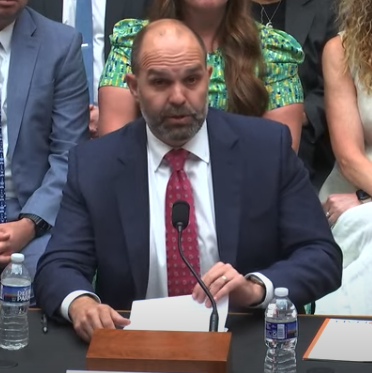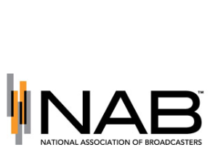
On Wednesday afternoon, Representative Darrell Issa (R-CA) used his US House Subcommittee to prop up his own struggling bill that would see local radio broadcasters charged a new royalty fee, with assistance from the royalty collector who would stand to make millions off of such an action. Rep. Issa, who is the Chairman of the House Judiciary Subcommittee on Courts, Intellectual Property, and the Internet, convened the hearing, titled “100 Years of Inequity for Recording Artists,” to promote the American Music Fairness Act.
In attendance to testify were NAB President and CEO Curtis LeGeyt, Radio One Cleveland Regional Vice President and General Manager Eddie Harrell Jr., recording artist Randy Travis, Travis’ wife Mary, and SoundExchange CEO Michael Huppe.
LeGeyt defended the current copyright framework that benefits both musicians and the public. He highlighted that the existing arrangement, where radio stations provide free promotional airplay to artists, has been mutually beneficial and should not be disrupted by new fees that could threaten the viability of radio stations.
Huppe remarked, “Creators need to be compensated whenever and wherever their music is played, especially when they form the backbone of the business model like they do for AM/FM radio.” Of course, royalty collection is the backbone of Huppe and SoundExchange’s business model. Huppe’s testimony neglected to mention SoundExchange’s 4.6% “administrative fee” for all artists it collects for, making a new royalty payment very lucrative for him and his company.
Given the $1 billion in royalties distributed by SoundExchange in 2023, profits would have come in north of $46 million. Add in what they want to take from local broadcasters, and that figure would soar even higher – all at the expense of both the artists and local broadcasters.
Huppe pondered why AM/FM doesn’t pay the same royalty rates as audio streaming companies such as Spotify and Apple, saying radio provides the “same consumer experience” – except for the fact it absolutely does not, as streaming is on-demand, a paid platform, and provides no emergency service.
At one moment during the pointed hearing, House Judiciary Committee Chairman Jerry Nadler (D-NY) shared a laugh with Huppe, saying that radio stations, “Can easily afford [the proposed royalty payments] by not joining the NAB.”
Huppe also argued against the promotional value that radio still provides artists, while LeGeyt countered with context. “A single song played during the morning drive on Mount Wilson’s Go Country 105.1 KKGO-FM in Los Angeles is the equivalent of 7,200 unique streams on Spotify or Pandora. On Atlanta’s New Country 101.5 WKHX-FM, a Cumulus Media station, that same song receives the equivalent of 9,100 plays on streaming platforms,” said LeGeyt.
Fortunately for broadcasters, the hearing was not entirely one-sided. Congressman Nathaniel Moran (R-TX) made an appearance to voice his support for AM/FM and the Local Radio Freedom Act. The LRFA is a resolution supported by a strong bipartisan majority with 226 co-sponsors in the House and 24 in the Senate and asserts that Congress should not impose any new performance fee, tax, royalty, or other charges on local radio stations.
While Randy Travis and his wife Mary were there to stump for the American Music Fairness Act, the conversation repeatedly turned to Travis’ single “Where That Came From,” his first new track since a 2013 stroke severely limited his ability to speak. This achievement was made possible through advanced AI and voice cloning technology that replicated Travis’ vocal and musical style over an original performance by James Dupre.
Legislators in attendance turned to Travis to get opinions on the use of AI in music and for advice on laws based around consent and proper attribution when it comes to AI likenesses.
At the hearing’s conclusion, it increasingly appears as though AMFA’s key stakeholders are rallying to make the NAB’s life difficult on as many fronts as possible.
The musicFIRST Coalition, which is the main driver behind AMFA, has been working in silence with its new co-Chairmen – former Arkansas Senator Mark Pryor and DC strategist Will Moschella – to not only sign new names to the Act, but to push the FCC to reinstate the Main Studio Rule, tighten ownership caps, and bring back the FM duplication rule.









I say that if this nonsense is passed, all music stations should drop all of the music labels and play artist from the Indie groups. Yeah stations won’t be playing the same ol hit thousands of times over and over in a month but the public would be introduced to new, up coming, unsigned artist that won’t be looking for robbery fees..aka royalties.
When stations are already paying fees to all of the major labels and SoundExchange…and now this nonsense if it’s passed, something has to be done…enough is enough! Time to start naming names of the people that run these groups and start looking at their salaries. How much that is collected actually goes towards these kingpins salaries verses actually being dispersed to the intended artist!
It seems like an obvious point, but I’m not hearing it in these arguments. Most, if not all, music radio stations also stream which means we are already paying artists through Sound Exchange. If AMFA becomes law we would pay TWICE? Once for the stream and once for the broadcasts? Between ASCAP, BMI, SESAC, and that other one that popped up not long ago; royalty payments are already a huge drain on profitability and are a real financial threat to small local operators.
I sure hope both the radio and record industries can come together and resolve their differences. If this AMFA becomes law, it could force many stations to play less music, the mom and pop radio owners to sell the stations to large corporations, or even worse, to either flip to a News/Talk format consisting of mainly syndicated shows that are based mostly out of New York or in some cases, to shut down completely. It was the few greedy artists that started this crap.